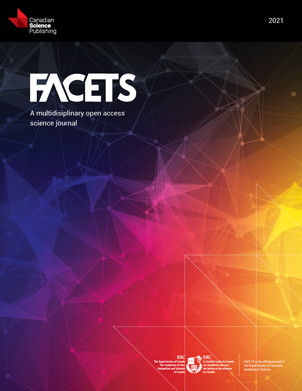Volume 10 • 2025
Research Articles
OPEN ACCESS

In Canada, recent advances towards reconciliation have introduced new collaborations between Indigenous and non-Indigenous governments, including for species-at-risk recovery planning. During these collaborations, Indigenous Knowledge (IK) is often requested, however, clear expectations of what IK is being sought and how diverse knowledge systems will be woven to produce tangible benefits to species recovery are often limited. Here, we provide a case study of a two-stage process to identify and collect IK components that can aid whudzih (caribou) recovery planning. First, we surveyed non-Indigenous government professionals involved in caribou initiatives to specify what IK would benefit recovery planning. Responses were used to guide the development of semi-structured interview questions. Interviews were conducted with knowledge holders from Lhtako Dene, a Southern Dakelh Nation in British Columbia, Canada with historic socioecological ties to caribou. Responses of government professionals highlighted 24 topics for caribou recovery, and interviews with Lhtako Dene knowledge holders revealed strong linkages between ecological and social information types. In some cases, the IK requested was not available from knowledge holders. Collaborations for caribou recovery would benefit from clarity on expectations and outcomes of IK sharing. We suggest that structured processes that respectfully facilitate IK requests and collection become commonplace in species recovery planning.
OPEN ACCESS
The aim of this study was to understand associations between pandemic stressors and parents’ self-rated physical and mental health; symptoms of mental health problems, and at-risk substance use problems. Data were collected from February 2022 to March 2022 as part of Wave 2 of the Well-being and Experiences Study in Manitoba, Canada (n = 749). Stressors frequently identified since the onset of the pandemic included inability to spend time with family and friends, worry about getting coronavirus disease-2019 (COVID-19), and travel restrictions. In the past month, the most frequently identified stressors were worry about getting COVID-19, travel restrictions, public health restrictions, and worry about the future. The stressors with the greatest number of associations with worse health outcomes included: job loss or financial burden; feeling lonely or isolated; disrupted or poor sleep; uncertainty about the future; accessing health care for any reason; increased conflict in relationships; cancellation of surgeries, caregiving for children; and inability to spend time with family. Understanding the COVID-19 stressors that were associated with health and substance problems can inform clinical approaches to respond to pandemic-related problems, as well as public health preparedness to mitigate declines in parents’ health and well-being in the context of future pandemics.







